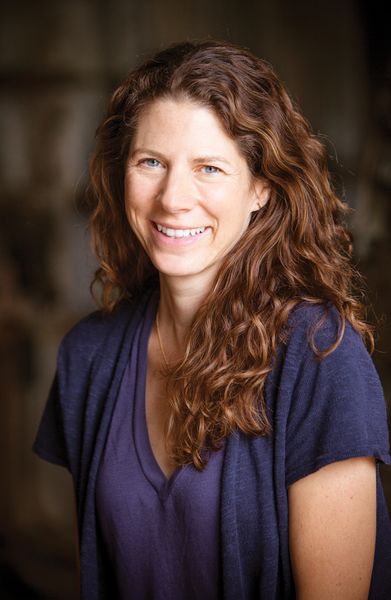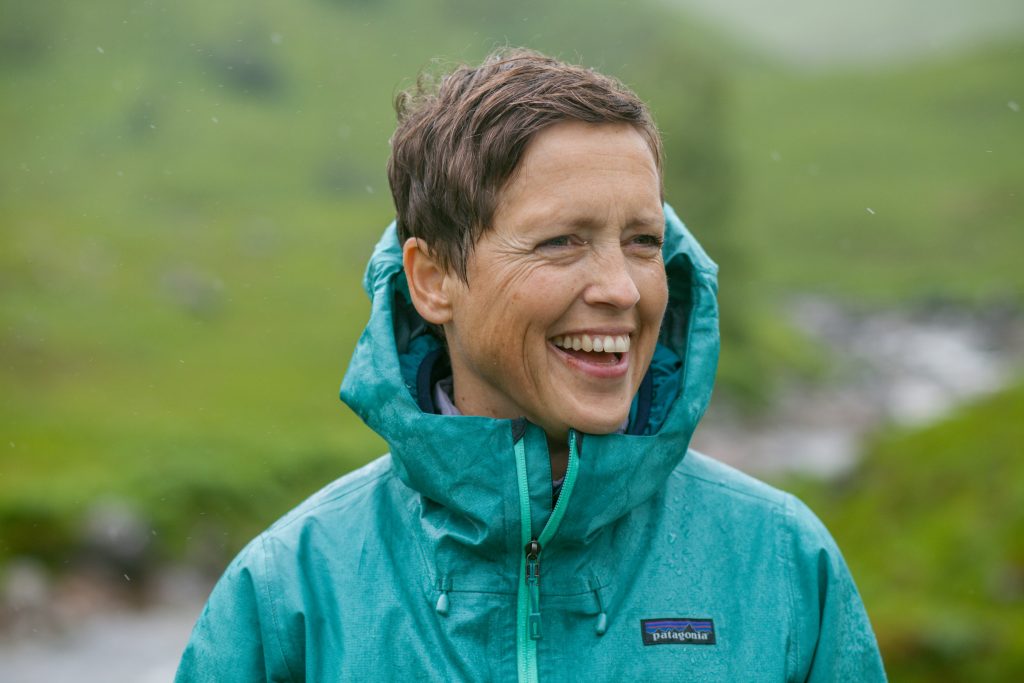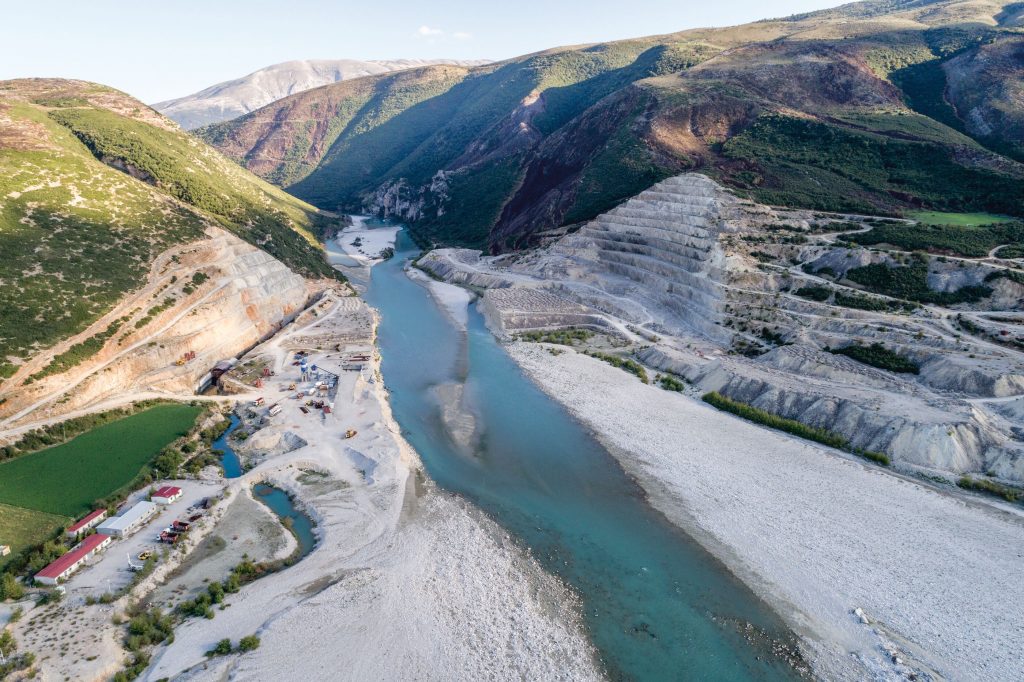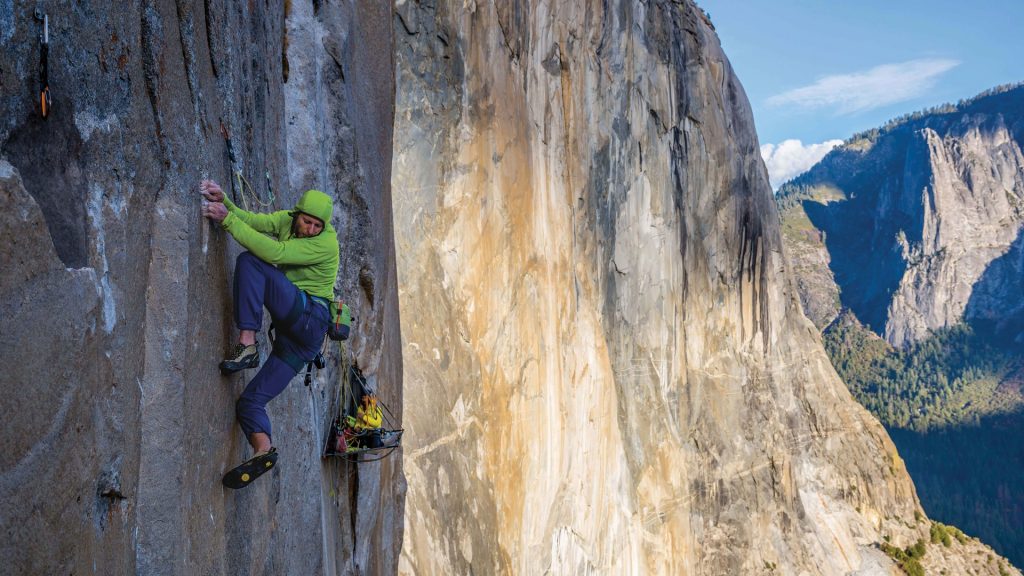When it comes to cult brands, outdoor gear icon Patagonia has to be the one right up there on that pedestal.
But this isn’t about clothes. We barely touch upon Patagonia’s latest outdoor collection when I find myself in the privileged position of sitting in a room with vice president of environmental activism, Lisa Pike Sheehy, and director of environmental initiatives in Europe, Mihela Hladin Wolfe. In fact, Patagonia’s latest collection is not mentioned at all.
They’re a powerhouse of a duo, arriving with windswept hair and suitcases in tow for their European tour, hungry for biscuits and coffee. Oh, how I wish we had arranged this interview in time for International Women’s Day.
Once you realise the scale of environmental activism these women are responsible for, any ideas about discussing technical fabrics dissipate as fast as the thoughts of questioning the air miles this tour is racking up. These activists have much bigger fish to fry.
Last year, Patagonia gave the $10 million tax savings Trump’s administration so generously bestowed upon large US corporations to environmental groups to help them build a “war chest”.
This year they’re giving close to $20 million to fund climate activist groups worldwide.
Since starting 1% for the Planet in 2002, an initiative where companies pledge to give at least one per cent of sales – not just profits, an important distinction – they’ve given away $110 million.
Last year, the brand became a B-Corp, which involves companies committing to legally consider the impact of their decisions on their workers and the environment as well as their shareholders.
They’re at the forefront of a community of brands upending an evolving capitalism, and their mission statement says they’re ‘in business to save our home planet’.
They just happen to be funded by a very loyal fanbase buying their highly coveted outdoor apparel.
We find out how big business really can be done differently…
Let’s start with Patagonia’s recently changed mission statement: “Patagonia is in business to save our home planet”…
Lisa Pike Sheehy (LPS): I love that our founder, Yvon Chouinard, put ‘home planet’ in there. We got a lot of questions about that, but he was adamant there’s no Plan B and there’s no Planet B; he said “I don’t want to live on Mars”.
I feel that we have evolved from an environmentally conscious company to an activist one, and that was just another transformative step.
We’ve always supported the grassroots environmental groups on the front lines. That is the DNA of how we operate.
But there was a certain switch that came in our growth, where we realised that having our own voice was additive – having a business voice and using some of the storytelling skills that we had learned over the years, to contribute to these issues.
PATAGONIA DOCUMENTARIES
DamNation (2014): Patagonia’s first foray into making a full-length feature film documentary about reducing the number of hydropower projects and dams in the US. Their big call to action was taking out four dams on the lower Snake River, which they’re still working on.
Blue Heart (2018): The Balkan region has preserved the last wild rivers in Europe, but they are under threat. The film follows a group of women determined to protect their river when every other protection mechanism fails. They have become a symbol of resistance in the Balkans and now pack themselves in a bus and help fights all over Serbia and Kosovo.
Artifishal (2019): A film that explores wild salmon’s slide toward extinction, threats posed by fish hatcheries and fish farms, and our continued loss of faith in nature. This is a film about the fight for the future of wild fish and the environment that supports them.
A Growing Problem: Soil (2020): Tapping into the growing expertise in organic regenerative agriculture and exploring what is believed to be one the greatest ways to mitigate the climate crisis.
Whose responsibility is solving the climate crisis – business or the government?
Mihela Hladin Wolfe: In the US a lot of people have given up on the government and are relying on private business to come up with solutions to the climate crisis – and that’s a very interesting discussion to have. In Europe, people and climate groups are asking governments to build a plan to get us out of this mess.
LPS: We’re going to need all of civil society, government and the private sector. No one sector or brand is going to be the saviour.
Business does have a very strong role to play. Currently the businesses in Washington lobbying on the hill are for industries like oil and gas. We need businesses who care about people and the planet to also show up.

Can you mix business with politics?
LPS: Absolutely. This is another way of showing leadership. For the last elections we started an effort called Time to Vote, encouraging companies to be flexible with working hours so people can vote.
You shouldn’t have to put your livelihood or your job at risk so you can exercise your right to vote. That was really, really impactful.
In the last midterms we got more political by endorsing two candidates, one in Montana and one in Nevada. These were critical races and they were both public lands champions.
The company had never endorsed anyone before, and this was straight up transparency – not behind the scenes lobbying with big dollars.
They were tight races and the candidates didn’t win by large margins. But they won. That makes it more exciting because if you’re winning at the margin, then it means you know you made an impact and we were able to analyse where and how.

Who do you support in the UK?
MVH: We won’t talk UK politics!
Mihela, you own shares in Shell, so let’s talk about that. Are you looking to make a quick buck?
MWH: Ha! There’s around 5,000 Shell shareholders in the Netherlands now, including me.
I own a share of Shell so I can go to their AGM, file resolutions and insist they come up with a strategy in-line with the Paris Agreements. Once they make this public, an organisation like Friends of the Earth can make a legal case against them.
I guess it’s not easy for Shell’s CEO; he has two small daughters and I heard they come home crying saying things like “we’re going to drown”.
But then, his PR campaign tells us to recycle and not eat strawberries in winter. They are his calls to action. So, we have to fight for more.
Why are these legal cases important?
LPS: We’re asking who is ultimately going to be responsible when Superstorm Sandy comes through and destroys our infrastructure. Why are taxpayers bearing the burden of all the impacts that are already happening and are going to continue to come?
There are environmental lawsuits all over the world and one of them is going to break through – when it does it will make sense to taxpayers.

How does activism impact Patagonia’s customer base?
LPS: We have a very loyal customer base, but of course we also get pushback.
Our favourite is when detractors say ‘stick to your knitting, you’re a clothing company’. Our response is that saving our home planet is our most important knitting.
This is nothing new for us, we’re just getting deeper into it. And we have the support of the entire company to say this is exactly where we want to put our resources.
MHW: As a business today it’s not just enough to clean up your own house, you need to look after the streets and the city, too. Right now everything’s on fire, so of course we are going to engage into really big system change conversations.
How important is consumer power? How much power does any one individual really have?
LPS: Consumers have a lot of power, they can vote with their wallets and make decisions that have an impact. It’s not a linear process though. Henry Ford said: “If I’d listened to the people I would have built a better horse”.
MVH: Exactly. Often you hear businesses say ‘once consumers send us a signal, then we will make some changes’. I think the role of business is actually to lead this change and to show that you can do things differently. Then, you will be rewarded by people knowing your brand and buying your products.
How does Patagonia inspire consumers to action?
MVH: We did a lot of research and it was super interesting, because for so long we’ve been told that it needs to be ‘easy’ for people to do something, but that was so far down their list of priorities.
People act because they care about the local community and because they want to do something meaningful.
What inspires you?
LPS: I have to say I get excited when we hear from our Patagonia Action Works groups saying that they were thinking of cancelling an event that has been on a downward spiral, but with support we give – even simply social amplification – they don’t just get five more people attending, they get 10 or 20 times more people showing up. It’s game changing.
MVH: Patagonia supports around 180 groups across Europe, a lot of them in the UK.
PATAGONIA ACTION WORKS
A platform to connect environmental groups with funding and skilled volunteers for projects and campaigns. Its aim is to build communities online and offline.
Patagonia Action Works
They are protecting the wild spaces and rivers, working on an energy transition or an energy revolution and on regenerative organic agriculture practices.
We don’t just fund them, we show up and do anything from visiting farmers to getting arrested at XR climate strikes.
So many fights. How do you celebrate success?
MVH: At the end of a long day, when you look at the global emission chart and it just keeps going up, you sometimes feel we are far from what we would really consider successful.
LPS: These are long fights. We rarely have time to focus on successes because the next issue is always imminent.
But it’s important to mark when we have small wins along the journey, somehow to celebrate those, to keep people engaged and vigilant and not burn out.
A lot of Patagonia’s focus is on small, local issues. Why is that?
LPS: If you can repopulate salmon populations in rivers or take out a small hydropower dam, it inspires communities. It also ladders up into global issues, so then the conversation becomes about whether hydropower should be a part of the sustainability mix for renewables. [It shouldn’t.]

So, how does selling outdoor wear fit into this? Your customers are your army of activists?
LPS: I don’t agree with the narrative that you have to destroy the earth to have a profitable business.
I want to show that you can have a healthy business that’s engaged in all these different ways, from activism to a good supply chain to a low carbon footprint. We’re not perfect but we’re getting there.
Main image: Budding wildlife photographer Porter Roach battles fall weather in the Tetons in search of the perfect shot. (Danny Schmidt)


